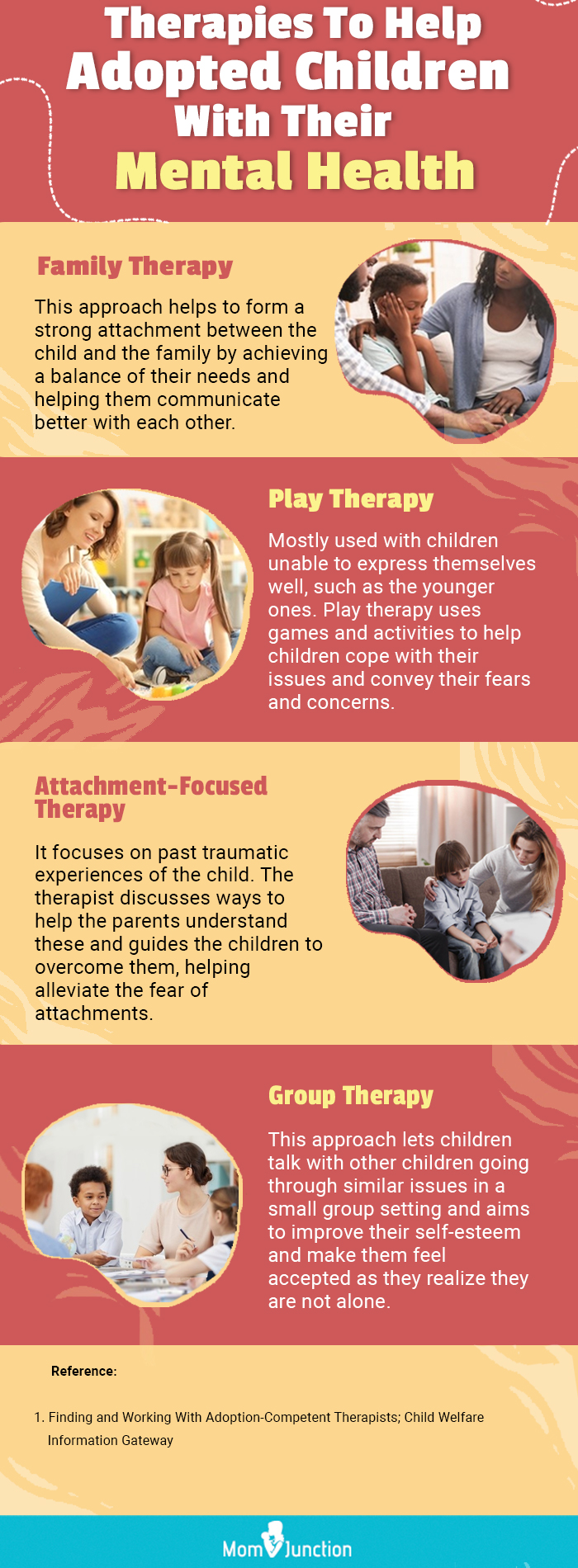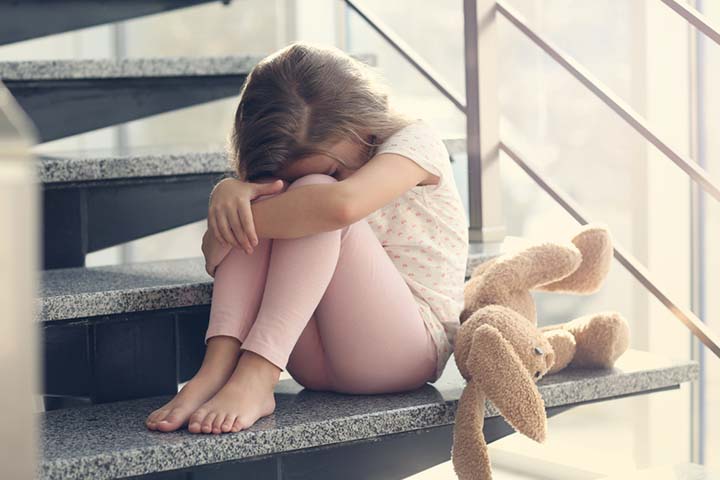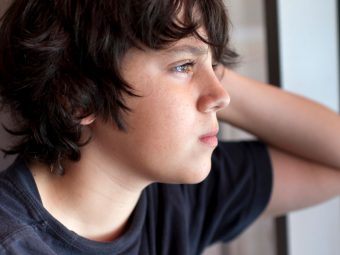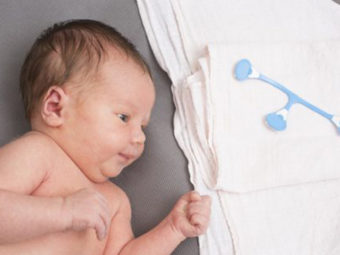
Image: ShutterStock
So, you are concerned about what’s bothering your adopted child and are trying to figure out what’s wrong with them. Psychological problems in adopted children can be seen very frequently, and the best way to address these issues is to learn more about your adopted child ‘s psychology. Adoption is a legal procedure that involves a lot of emotions for you, your family, and your adopted child. Adoption often involves some of the key behavioral issues in children, which could pose obstacles in caring for your child. This post discusses some of the most frequent psychological issues that adopted children face, as well as how they might affect Why You Shouldn’t Split Parental..their health, well-being, and development.
Prominent Psychological Problems With Adopted Child
Adoption often negatively affects the attitude and behavior of adopted kids, so learning about psychological issues with adopted children is critical. Psychological and behavioral issues may include (1):
1. Feelings of Rejection
If your child was adopted at an early age and does not remember the adoption, they may experience a wide variety of emotions, including rejection upon learning about the adoption. Your child may think that their biological family did not like or want them or did not love them. The feeling of being unwanted or abandoned may affect your adopted child’s psychological health and development negatively. Feelings of rejection or abandonment may affect the behavior of your child adversely, so finding ways to make your child feel that they are an important part of your family are imperative.
 Trivia
Trivia2. Loss and Grief
Image: Shutterstock
Unexpressed feelings of loss and grief due to perceived abandonment may contribute to behavioral problems in your adopted child. A myriad of emotions may include not only grief and loss, but also shame, disappointment, confusion, and curiosity. It is natural for your child to have questions about their biological parents. Also, if they are old enough to remember, your adopted child may grieve the loss of their biological siblings, grandparents, as well as friends, and other familiar environments (1).
3. Identity Queries
Your adopted child may suffer from issues related to self-identification on learning about their adoption. Identity development can be more complicated in adopted kids. They will likely have many questions about their biological parents, where they lived, who they resemble, why their biological parents gave them up for adoption, and such. Your child may also ask you about their biological family traditions and heritage (2).
 Did you know?
Did you know?4. Self-esteem
The sense of self-esteem of your adopted child relates to her sense of belonging, identity, value, and dignity. Studies reveal that adopted kids score lower on self-esteem than their non-adopted counterparts (3).
5. Genetic Problems
Image: Shutterstock
Often, an adopted child doesn’t have access to their biological or genetic family health information. If your adopted child has a genetic history of any ailment or disorder, then they may not have appropriate knowledge of it. Lack of genetic health history may affect learning the right line of treatment (4).
Frequently Asked Questions
1. Do adopted children have more behavioral issues?
Adopted children may exhibit behavioral problems such as oppositional behavior, aggression, depressive symptoms, violent tantrums, and sensory self-stimulation under stressful or exciting situations (8). However, there is no evidence to state that adopted children have more behavioral issues.
2. Do all adoptees have attachment issues?
Adopted children are most likely to experience attachment problems. However, older children are more likely than younger ones to experience attachment issues. Therapy and counseling will help treat many of these problems (8).
It is quite typical to see psychological problems in adopted children due to rejection, abandonment, feeling grieved or lost because of their biological parents. Identity crises, low self-esteem due to a loss of sense of belonging, and other factors could also be to blame. So, if your adopted child has any negative behavioral issues, it’s critical to figure out the cause, then handle the situation thoughtfully and compassionately. Giving them love and care will surely assist you in properly addressing their behavioral issues and considerably improving their general well-being.
 Point to consider
Point to considerInfographic: Therapeutic Approach To Psychological Problems In Adopted Children
While being welcomed into a caring family is a blessing for the adopted child, their past experiences can trigger mental health problems. These may interfere with their happiness for the new journey and affect the family as well. Here are a few therapeutic approaches to explore to help them overcome their issues and connect with their new family. Illustration: Momjunction Design Team
Get high-quality PDF version by clicking below.
Download Infographic
Key Pointers
- One of the most common psychological and behavioral issues among adopted children is the feeling of rejection.
- Feelings of grief and despair that go unspoken owing to a sense of abandonment in your adopted child might lead to behavioral disorders.
- Adopted children may also have difficulty with their self-esteem.
References:
- Helping Adopted Children Cope With Grief and Loss.
https://www.childwelfare.gov/topics/adoption/adopt-parenting/helping/ - Adoption and the Stages of Development.
https://www.childwelfare.gov/pubPDFs/f_stages.pdf - H. Norman Ames; (1996); The Influence of Adoption on Self-Related Social-Emotional Characteristics of Adopted Children and Adolescents.
https://digitalcommons.usu.edu/cgi/viewcontent.cgi?article=2017&context=gradreports - Robbie J Steward and Betty Jane Lynn; A Study of Self- Esteem In Adopted and Non-adopted Adolescents.
https://files.eric.ed.gov/fulltext/ED318940.pdf - Growing Up Adopted: Study Highlights Health, Happiness of Adopted Children.
https://cradlehope.org/adoption/growing-up-adopted-study-highlights-health-happiness-of-adopted-children/ - Joseph Westermeyer et al.; (2015); Personality disorders in adopted versus non-adopted adults.
https://pubmed.ncbi.nlm.nih.gov/25752207 - Borderline personality disorder and adoption
https://aapel.org/bdp/BLadoptionUS.html - Behavioral and emotional issues in adopted children.
https://www.chop.edu/conditions-diseases/behavioral-and-emotional-issues-adopted-and-foster-children#:~:text=Children%20who%20are%20adopted%20may,%2C%20aggression%2C%20depression%20and%20anxiety.



















